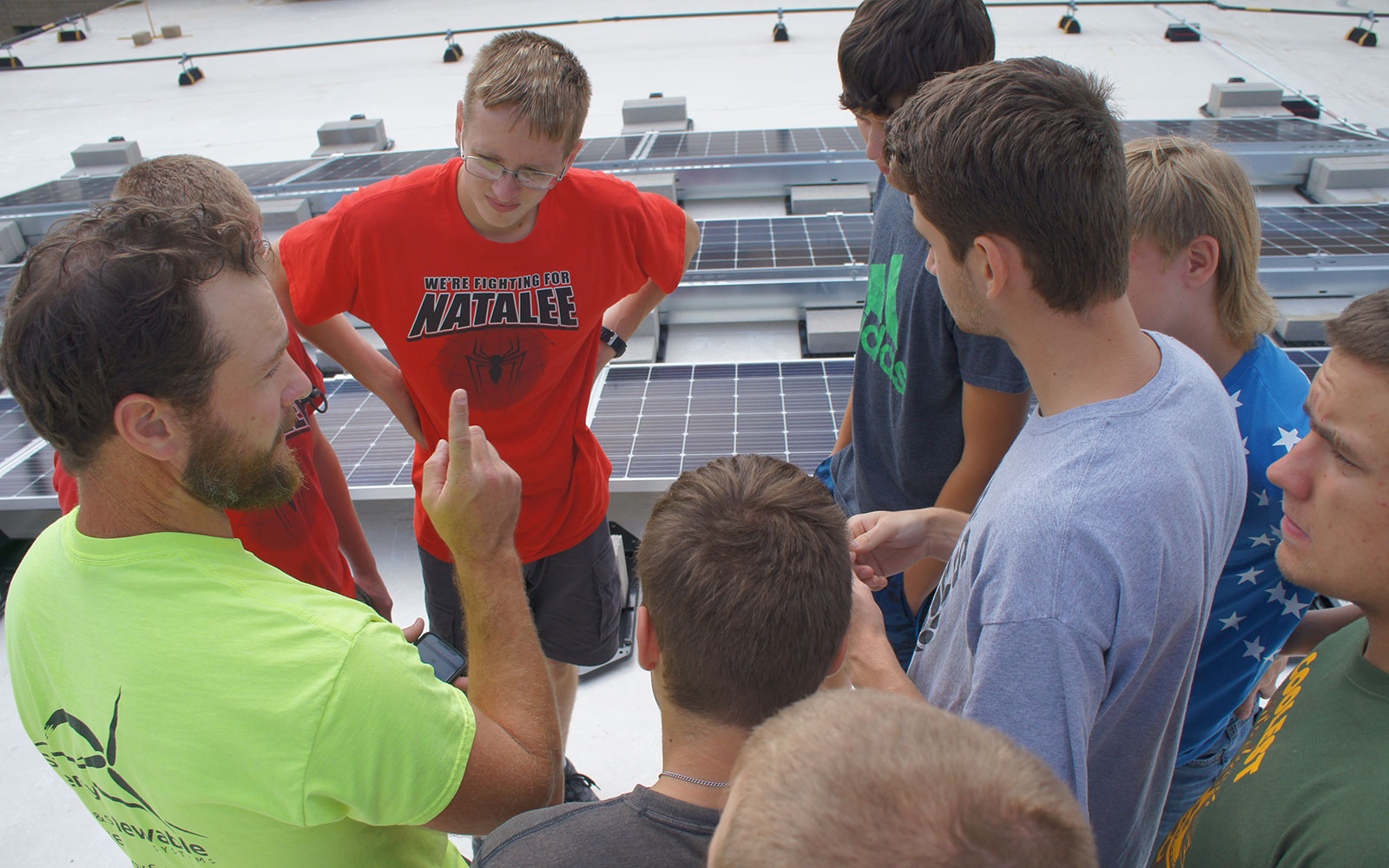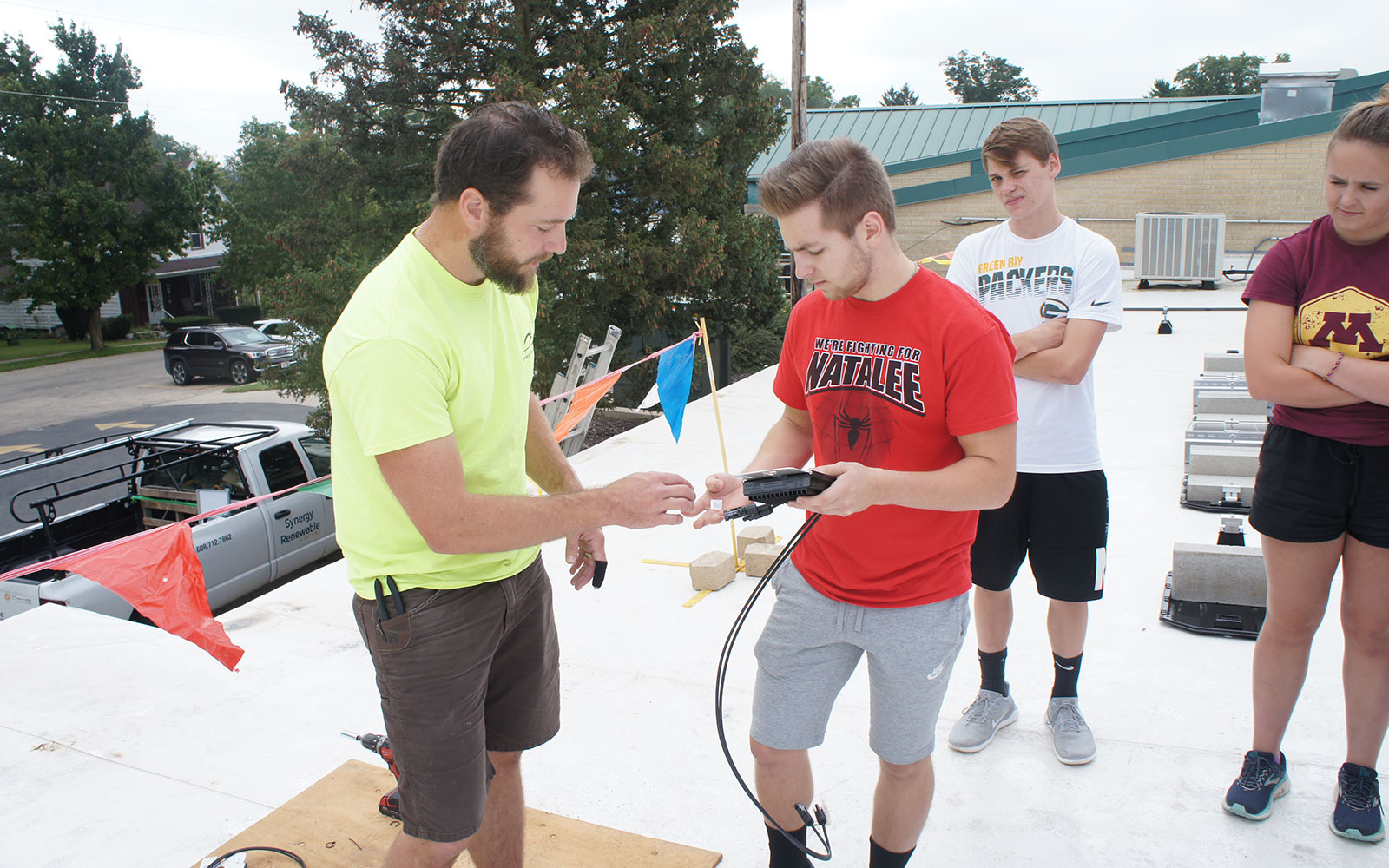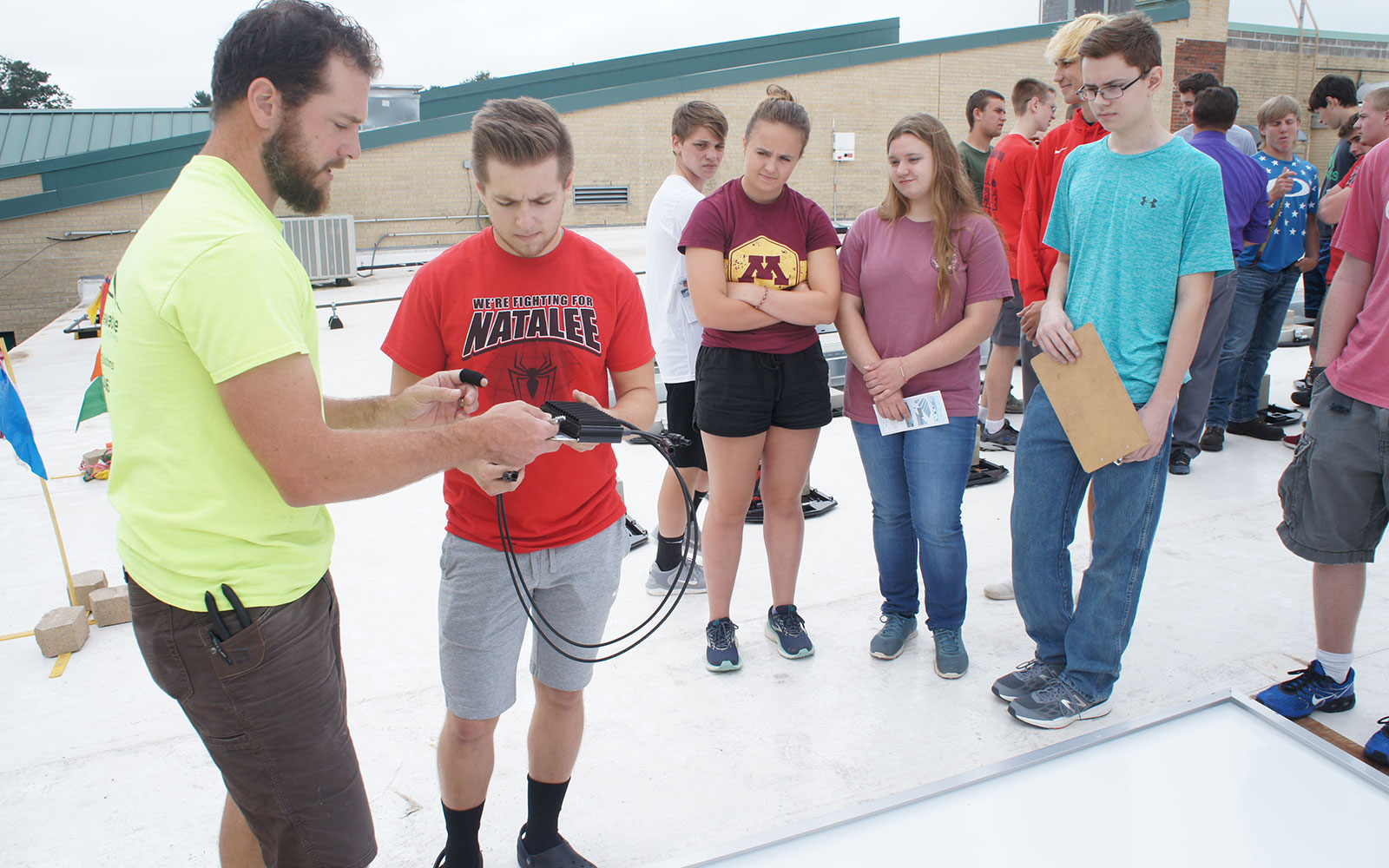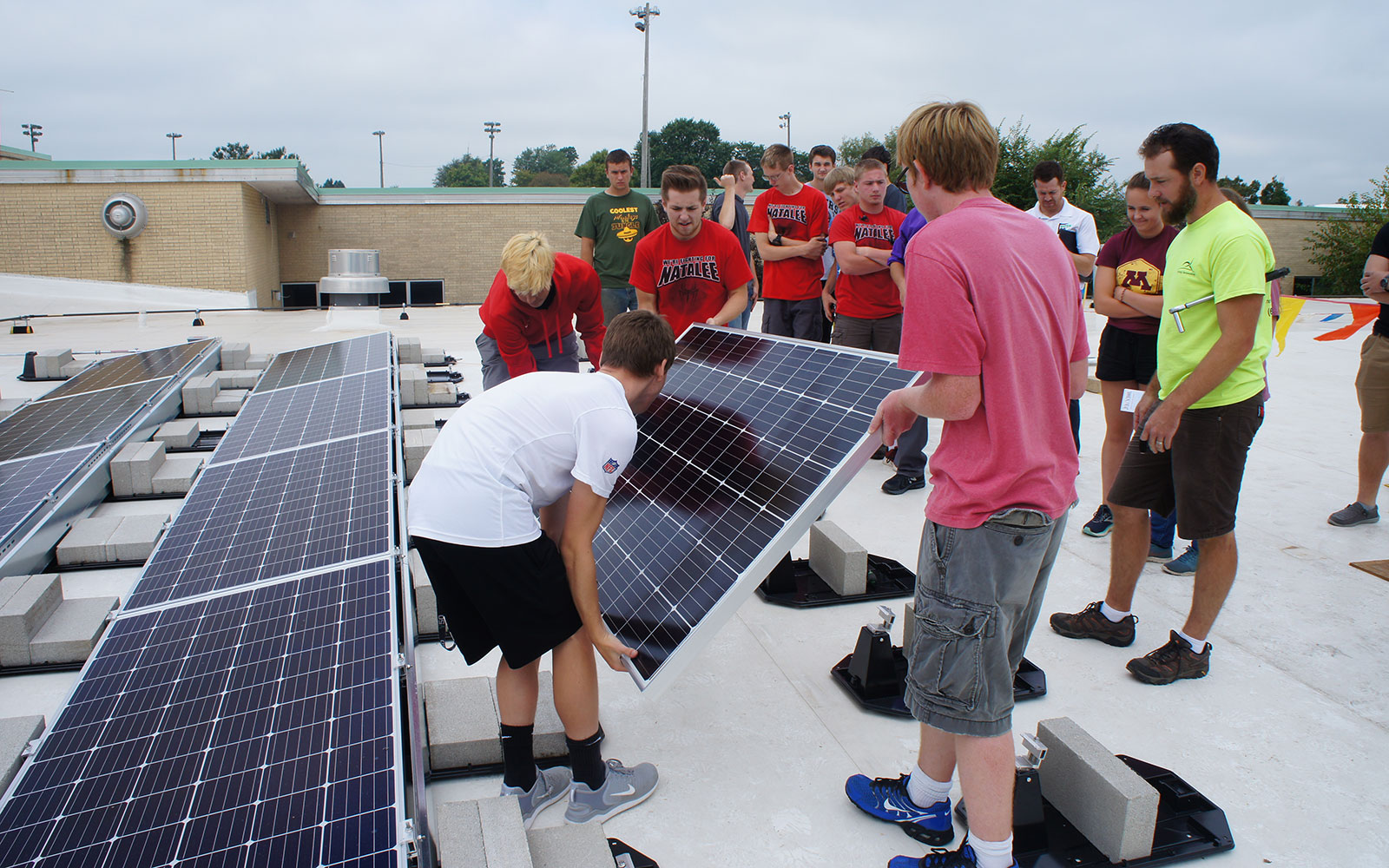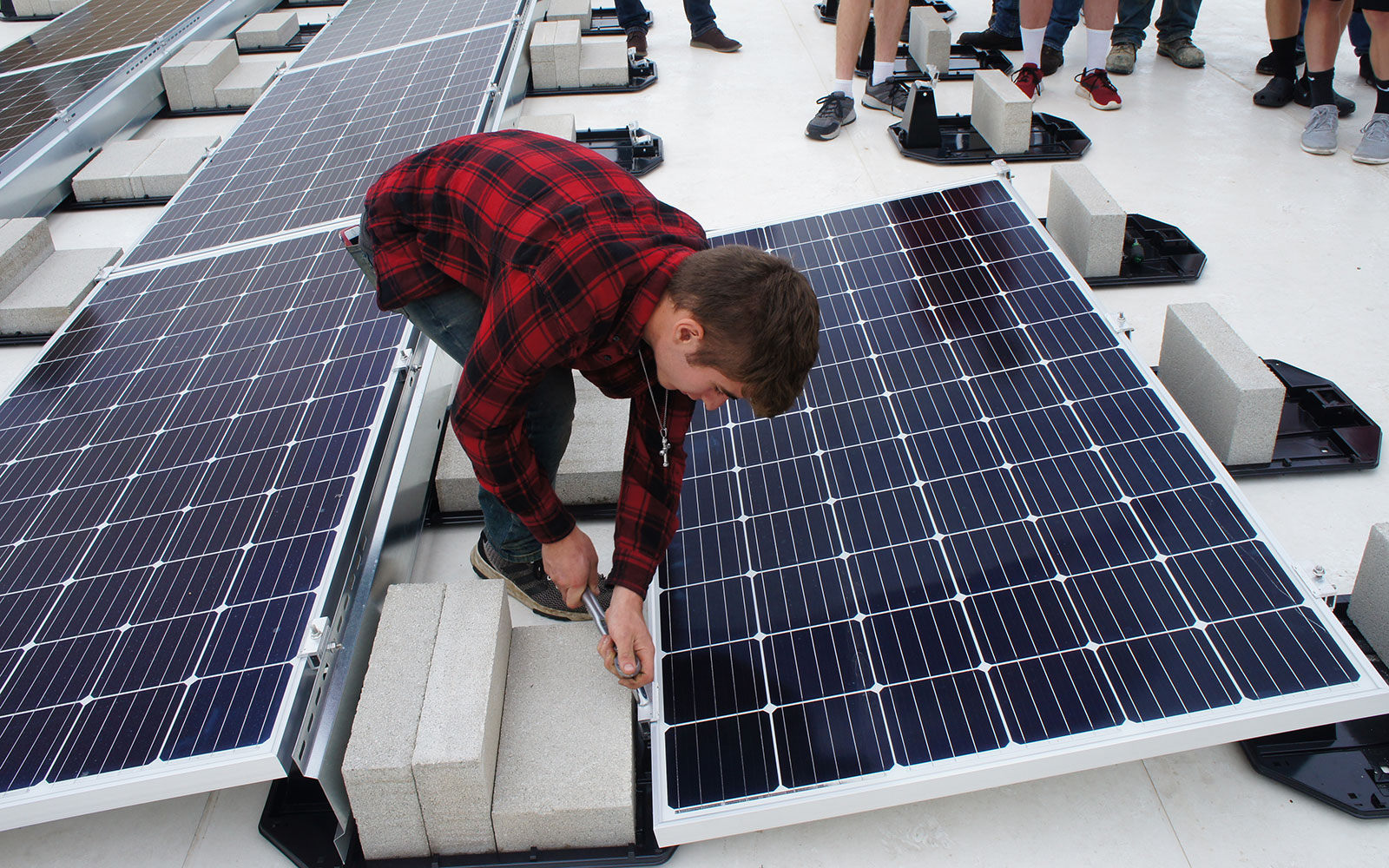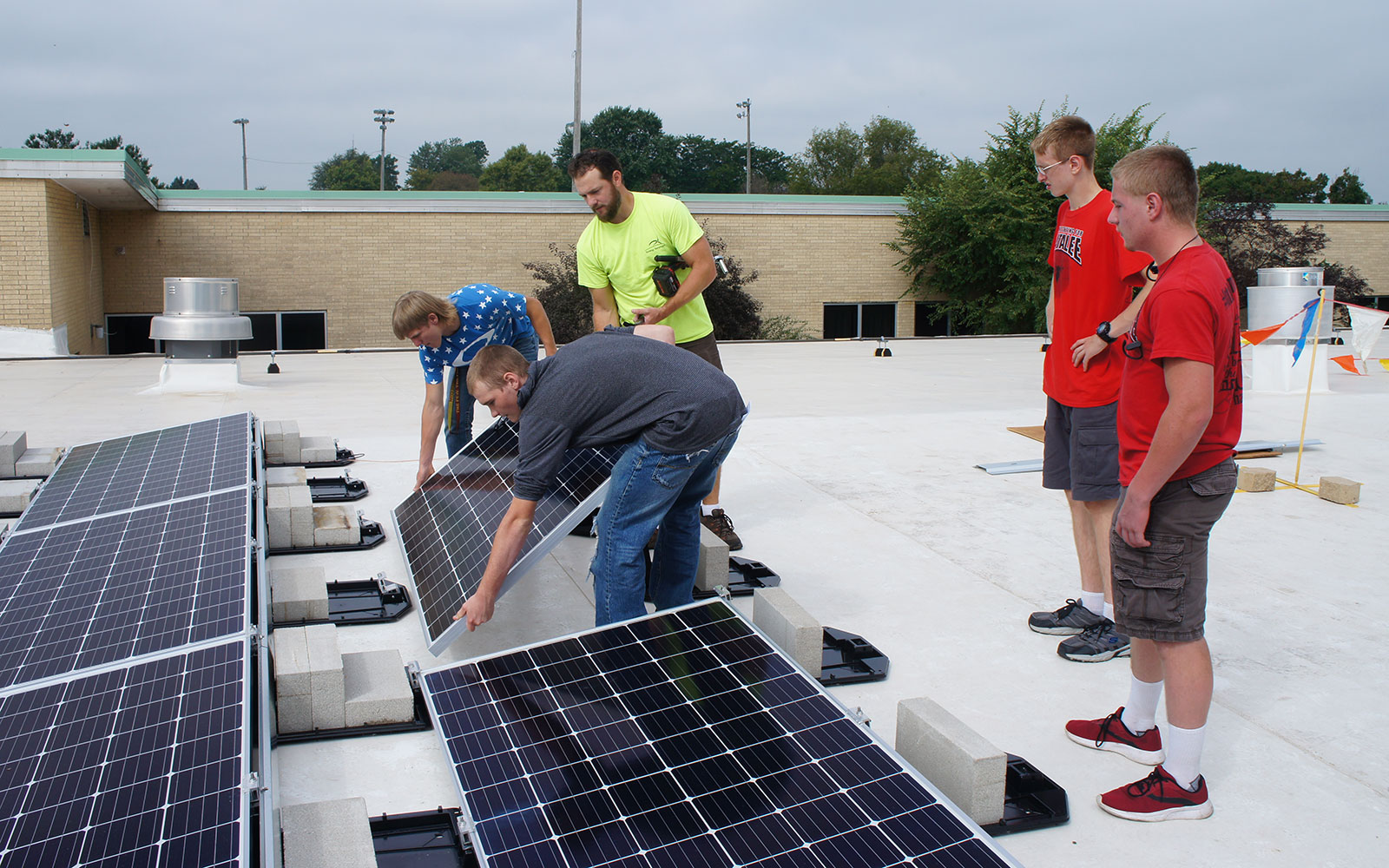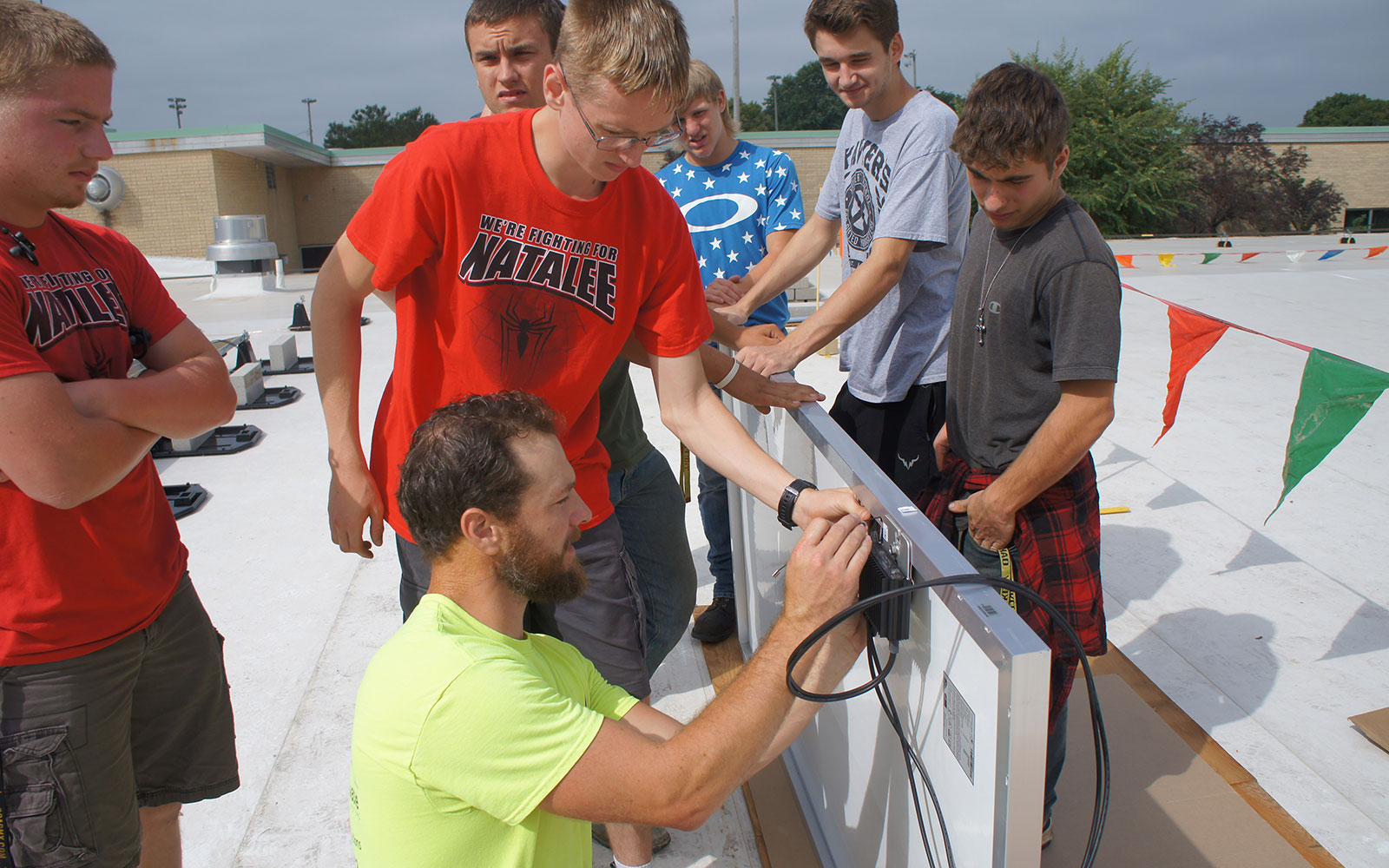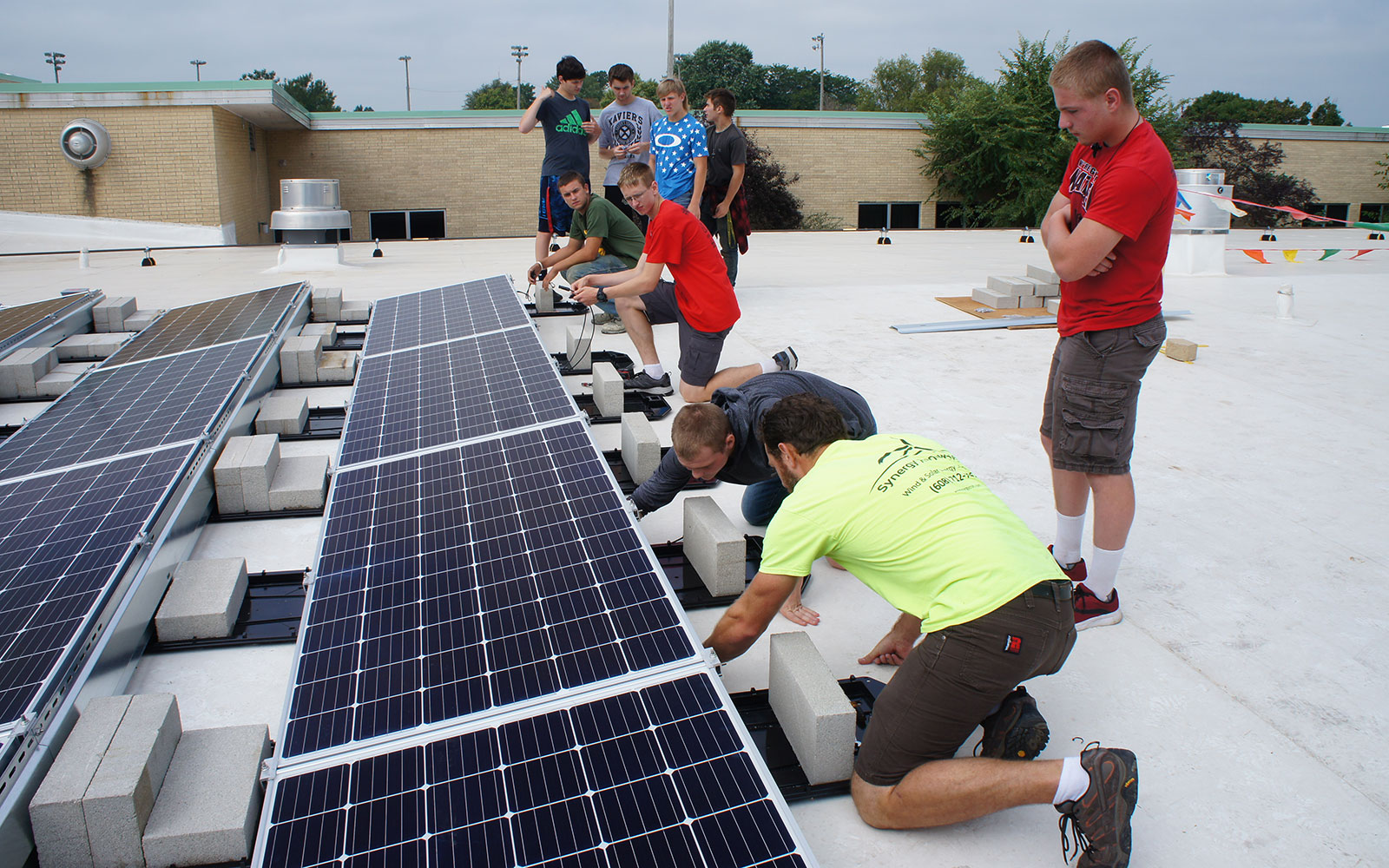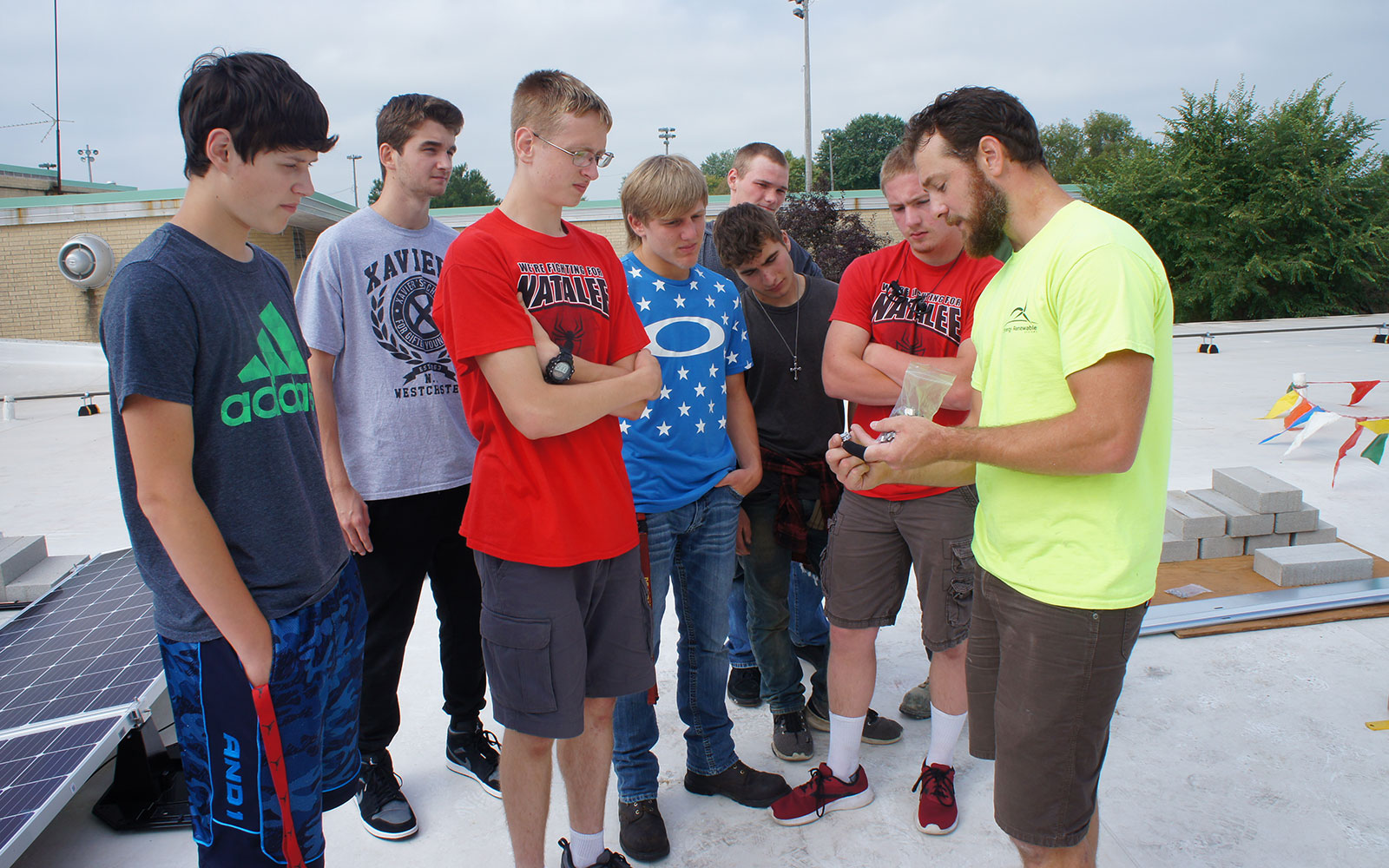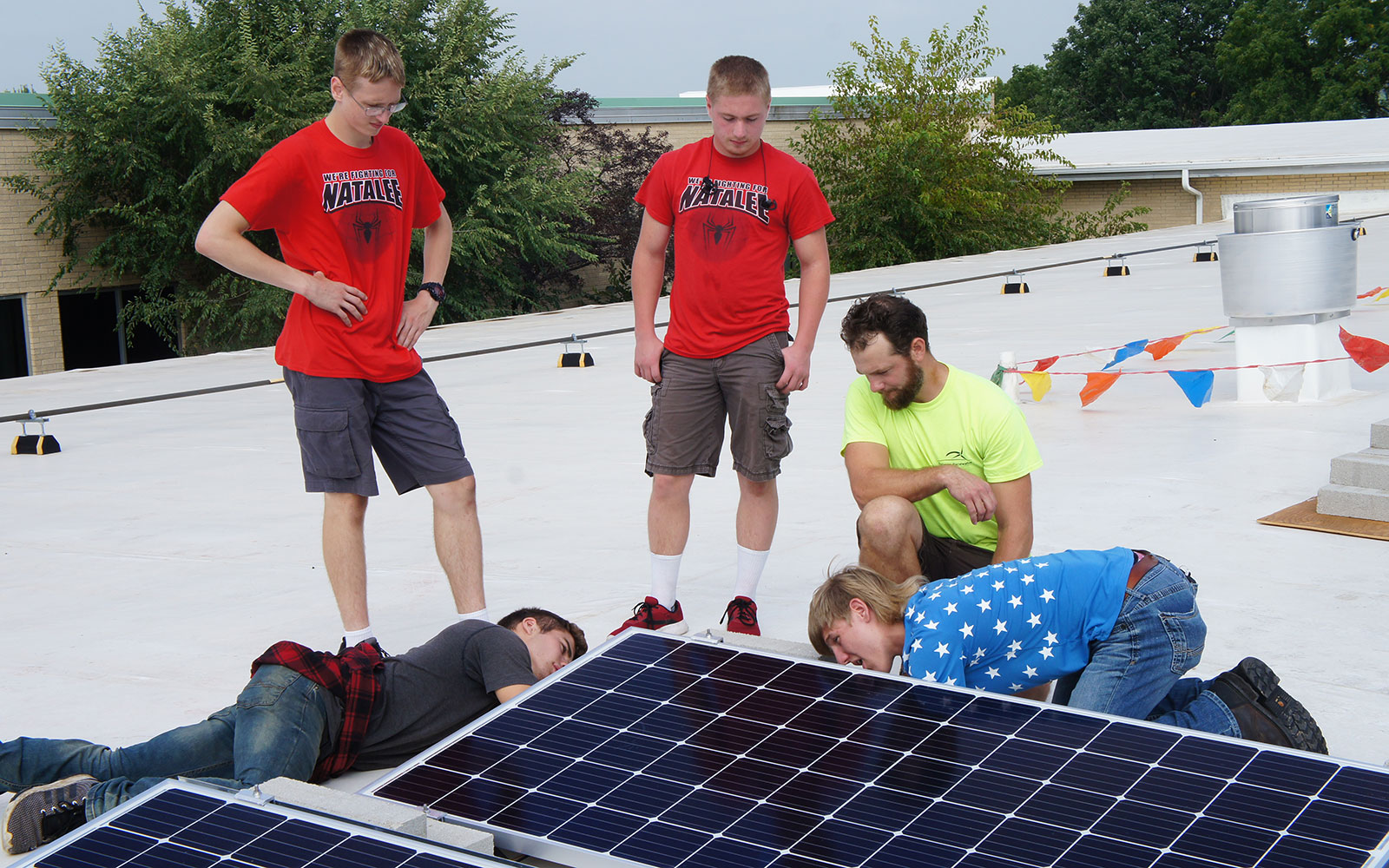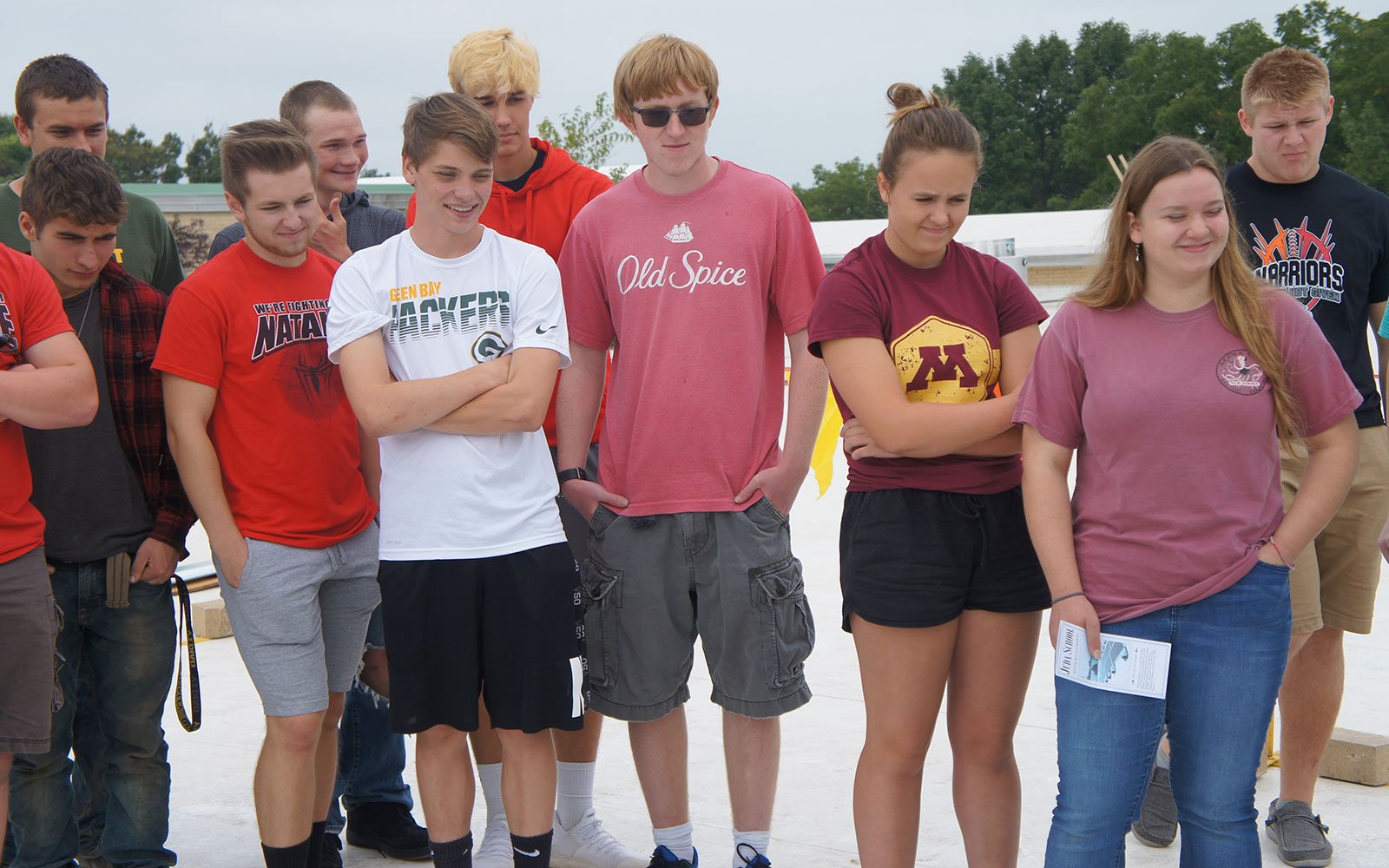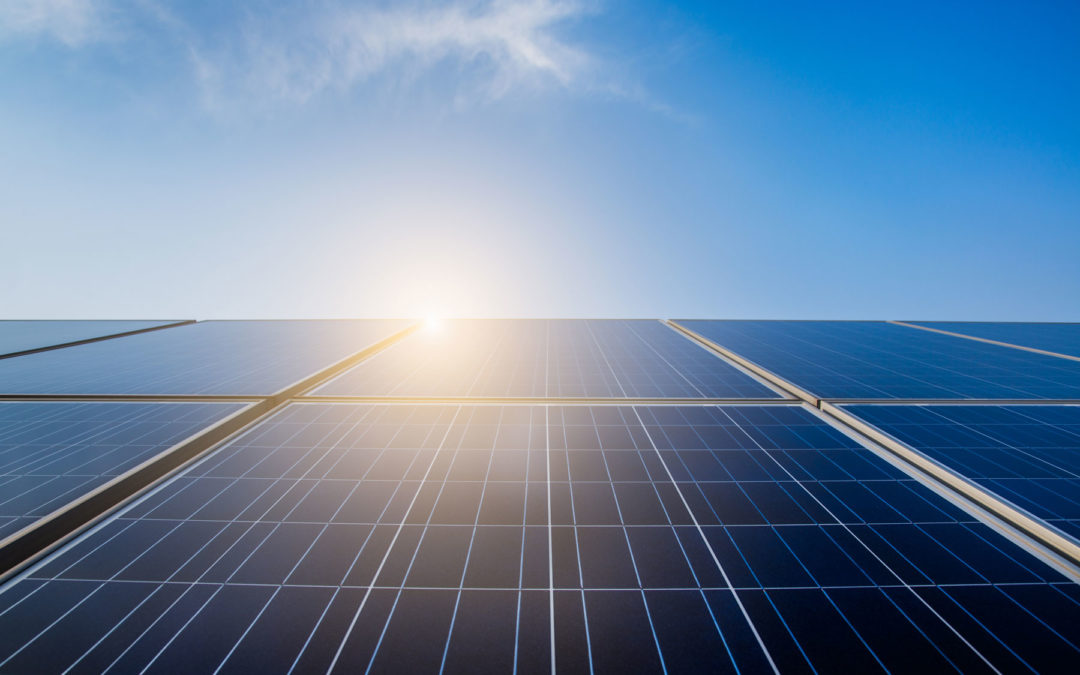
by Michael Vickerman | Nov 6, 2020 | Electric Vehicles, Energy Storage, Programs, Public Service Commission, Solar
Update: The Request for Proposals (RFP) pursuant to the 2020 grant cycle of the Energy Innovation Grant Program has been posted on the Public Service Commission’s web site. You can access the RFP here. The due date for grant submissions is January 22, 2021.
October 19, 2020
The Public Service Commission approved $7 million in funding that will be awarded through the 2020 round of the Energy Innovation Grant Program (EIGP). The EIGP awards financial assistance that supports the Office of Energy Innovation’s mission relating to energy efficiency, renewable energy, transportation, planning and resilience. In the previous round in 2018, the EIGP distributed nearly $5 million to more than 100 recipients. EIGP presently has a cash balance of more than $26 million.
The final order (PSC REF# 398392) was issued on October 16th, setting forth elements including (1) eligibility criteria; (2) eligible activities; (3) program budget; (4) procedures for tracking and reporting; and (5) development of the Request for Proposals (RFP).
The most important decisions rendered by the Commission are itemized below, interspersed with tables providing greater granularity on the program design and schedule.
Key decisions
- The following entities are eligible to seek funds through this program: manufacturers of all sizes; and cities, villages, towns, counties, K-12 school districts, tribes, municipal water and wastewater utilities, municipal electric utilities, municipal natural gas utilities, University of Wisconsin System campuses and facilities, Wisconsin Technical College System, public or nonprofit hospitals, and 501(3)(c) nonprofits (collectively MUSH Market).
- A budget of $7 million was authorized for the upcoming round. This represents an increase of $2 million from the previous round. The allocations for each of the four program activities are listed below.
- Projects involving all statutorily defined renewable energy resources are eligible for funding.
- The additional $2 million were allocated to Activities 1 and 2.
| Optional Available Funds Per Activity for 2020 Program Year |
| Activity |
Maximum grant request |
Available funds per activity |
| 1. Renewable Energy + Energy Storage |
22% up to $250,000
(solar PV only) |
$2.5 million |
| $500,000 (other RE) |
| $250,000 (energy storage system) |
| $500,000 (solar + storage) |
| $750,000 (other RE + storage) |
| 2. Energy Efficiency + Demand Response |
$1 million |
$3 million |
| 3. Electric + RNG Vehicles + Infrastructure |
$100,000 |
$1 million |
| 4. Comprehensive Energy Planning |
$100,000 |
$500,000 |
| Total |
|
$7 million |
The Commission also approved a timeline for the upcoming round of funding, the milestones of which appear in the table below.
| Tentative 2020 Energy Innovation Grant Program Year Timeline |
| Date |
Activity |
| 9/2020 |
PSC consideration of 2020 Grant Program Design – final order issued |
| 10/2020 |
Final order issued; Circulate RFP 90-day application period |
| 1/2021 |
Applications due |
| 2/2021 |
Review and score proposals |
| Spring 2021 |
2020 EIGP Award recommendations considered; announce awards |
| Spring 2021 |
Contract negotiations; sign award agreements |
by Jane McCurry | Jun 24, 2020 | Electric Vehicles, Programs, Public Service Commission, Utilities
On Thursday, June 18th the Wisconsin Public Service Commission (PSC) unanimously approved Xcel Energy’s three pioneering electric vehicle (EV) programs. Xcel, whose western Wisconsin service territory includes Eau Claire, La Crosse and Ashland, proposed two residential programs in addition to a commercial pilot program, all intended to reduce the upfront cost of installing electric vehicle charging infrastructure. These programs will make it easier and more affordable for individuals and businesses to install electric vehicle chargers and commit to driving electric.
In 2014, Madison Gas & Electric’s Charge@Home electric vehicle pilot program was approved by the PSC. Charge@Home launched in 2016, and like Xcel’s programs, it aims to help with the obstacles of EV adoption. Xcel’s two residential programs mark the first time a full-fledged electric vehicle program has been approved in Wisconsin.
Residential Programs
Under both of the residential programs, Xcel will install and maintain ownership of a level 2 charger on the customer’s property, provided the customer owns an electric vehicle. Customers will have the option of paying more upfront coupled with a lower monthly fee through their “pre-pay” option, or taking a “bundled” approach and paying more per month while foregoing the upfront charge. While customers will end up paying back the cost of the system over time, Xcel’s ownership of the charger means the expense of upkeep and replacement (if necessary) will be paid for by Xcel.
Under one of the programs, the electric vehicle charger will meter the electricity used to charge the car, which will be billed on its own EV-only time-of-use rate.* This means that customers can take advantage of the cost savings of charging their EV using inexpensive electricity overnight without having to switch their whole house to a time-of-use rate or install a second meter.
The second residential program is for customers who have on-site solar generation or who already use a time-of-use rate. This program is patterned after the first, except that the electric vehicle charging will not be put on its own rate. The whole home, including the EV charging, will be billed at Xcel’s existing residential time-of-use rate.
Commercial Pilot Program
Xcel will also run a commercial electric vehicle pilot program. In this pilot, Xcel will be studying an alternative to current line extension* rules. The utility will help customers finance the cost of make-ready infrastructure* needed for EV charging stations, which includes all necessary electrical equipment to operate the stations. Customers will pay the utility back over time as they use more electricity to charge their cars. The commercial customer would also have the option of letting Xcel own the charging stations, not just the make-ready, in which case the customer would pay an additional monthly fixed fee. These options will help commercial customers bring down what can sometimes be a very high upfront cost to install make-ready and charging infrastructure.
It can be expensive to install the equipment needed to recharge electric vehicle batteries, especially in commercial settings. We commend Xcel for finding creative solutions to some of the upfront cost barriers to electric vehicle ownership and deployment. These programs give Wisconsin customers more options for affordable electric vehicle charging and we’re excited to see the PSC approve them.
LINE EXTENSION • When the utility needs to add new electrical infrastructure to get electricity to a customer meter, it’s called a line extension. There are costs associated with adding this infrastructure, and approved formulas that help the utility calculate which costs the customer will pay.
MAKE-READY INFRASTRUCTURE • All of the electrical equipment up to (but not including) the EV charger. This includes wiring, conduit, electrical panel upgrades, and any other equipment or upgrades that are needed to place a functioning EV charger in the location.
TIME-OF-USE RATE • A time of use rate means that the amount you pay for electricity changes depending on the hour of the day and the day of the week. Typically, that means you pay more during daytime hours on weekdays, when it’s more expensive for the utility to generate and deliver that power, and less at night and on weekends, when the cost of supplying electricity to customers is significantly lower.
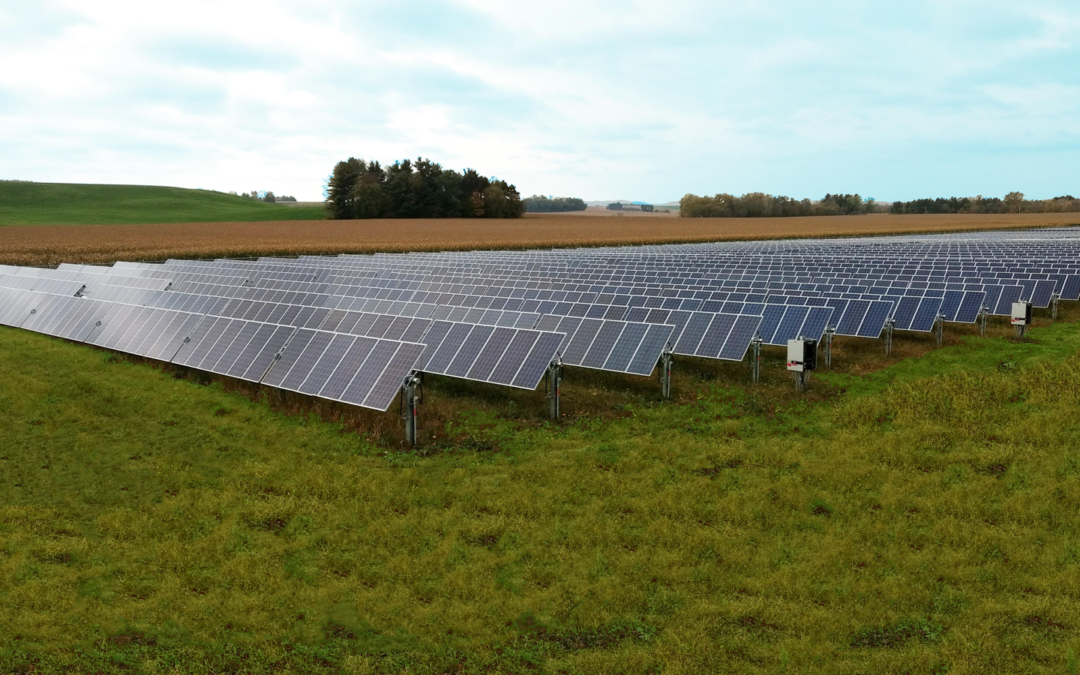
by Michael Vickerman | Apr 30, 2020 | Local Government, Programs, Public Service Commission, Renewables, Solar, Utilities
The Public Service Commission this week signed off on the newest solar farm slated for construction this year in Dane County. This solar power plant will cover 58 acres at the northern end of Dane County Regional Airport, and will involve more than 31,000 panels mounted on single-axis tracking systems. Madison Gas & Electric (MGE) will own and operate the solar plant, and expects to complete construction in the fourth quarter of 2020.
MGE’s solar field is noteworthy in that it will produce clean electricity for only one customer: Dane County. This will be the first example in Wisconsin of an offsite solar project dedicated to a single customer, albeit one with multiple facilities in MGE territory.
Through a long-term contract with MGE, Dane County will purchase the project’s output to offset its own purchases of grid-supplied electricity over the course of the facility’s 30-year-plus life. At nine megawatts (MW), the facility should produce on average 18 million kilowatt-hours a year. All told, the solar farm’s output should equate to about 40% of the electricity consumed at county-owned facilities served by MGE.
The PSC decision contained two separate approvals. First, the agency approved the power purchase agreement between MGE and Dane County, which is provided through the utility’s Renewable Energy Rider service. Under the contract, Dane County will pay 5.8 cents/kWh for electricity generated in the first year of operation, which will result in immediate savings. That price will escalate 2% per year over the contract’s term, which should track closely with anticipated increases in utility energy costs. After 30 years, Dane County will have paid off MGE’s entire investment.
The PSC also authorized the expenditure of $16 million to permit, build, and operate the solar field at the airport. The installed cost of the project equates to $1.78/watt, in line with other, smaller utility-owned projects such as MGE’s 5 MW facility now under construction at Middleton’s Morey Field.
Dane County is the third MGE customer to take service from an offsite solar array built under the Renewable Energy Rider service, following in the footsteps of the City of Middleton and the Middleton-Cross Plains Area School district. Those two customers have committed to purchase the output from a combined 1.5 MW share of the Morey Field solar array, which should commence operations in June 2020.
Notwithstanding its voluntary nature, MGE’s Renewable Energy Rider program has proven to be an attractive option for local governments that have adopted aggressive clean energy goals but are limited in their capacity to host solar systems on all their facilities. Later this year, MGE will file an application to build a 7 MW solar farm to serve the City of Madison and the Madison Metropolitan School District (MMSD). As with Dane County, MGE is the electric provider for many facilities owned by the City and MMSD. The solar array will be located near the Dane County Landfill in southeast Madison.
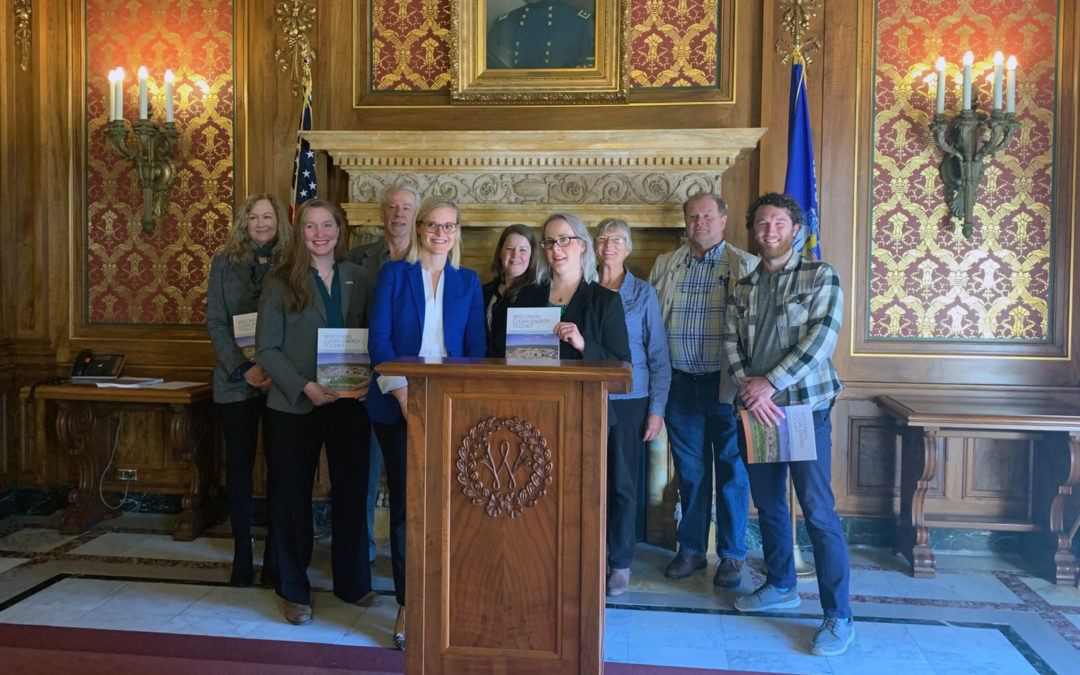
by Heather Allen | Mar 10, 2020 | Advocacy, Community, Local Government, Local Initiatives, Policy, Programs, Public Service Commission, RENEW Wisconsin, Renewables
RENEW Wisconsin, Wisconsin Conservation Voters, and Sierra Club have released the Wisconsin Clean Energy Toolkit: Developing a Clean Energy Plan for Your Community.
Towns, villages, cities, and counties in Wisconsin are building the renewable energy economy. The Wisconsin Clean Energy Toolkit recognizes this leadership in Wisconsin communities and the opportunities to expand these efforts across the state.
As part of its statewide launch, clean energy leaders, including Wisconsin State Treasurer Sarah Godlewski, addressed members of the media and the public across the state on March 10th, 2020 to announce the release.
“The Wisconsin Clean Energy Toolkit will help communities develop clean energy plans, which are good for the environment and also can be good for a community’s bottom line,” said State Treasurer Sarah Godlewski. “I’ve seen this firsthand as the Chair of a $1.2 billion trust fund, how we’ve helped local governments finance projects such as solar panels that saved taxpayers’ money. I hope communities across the state see us as a partner in their projects to address climate change and lower energy costs.”
Local communities across Wisconsin are eager to develop and implement clean energy plans. Often, they struggle with how to begin from a technical perspective and how to engage their communities.
“Smaller communities often lack the staff to conduct clean energy assessments and make recommendations,” said Jennifer Giegerich, Government Affairs Director for Wisconsin Conservation Voters. “This toolkit is a comprehensive resource for those considering a commitment to clean energy.”
The Wisconsin Clean Energy Toolkit is a comprehensive guide to energy policy options in Wisconsin. The toolkit is a resource designed to help guide communities of varying sizes and with differing resources as they consider, craft, and implement clean energy policies, and how to ensure the greatest return on potential clean energy investments.
“Local governments have heard from their residents; they want to shift to clean, renewable energy,” said Heather Allen, Program Director for RENEW Wisconsin. “But they need resources and technical support to make the transition. This toolkit offers practical strategies to help communities access affordable clean energy.”
“The Public Service Commission’s Office of Energy Innovation is committed to delivering programs that have a measurable impact on our state, this is why we’ve supported the Energy Independent Communities and will continue to support (with grants and technical assistance like this guide) communities and Tribal Nations on the road to our clean energy future,” Megan Levy, Local Energy Programs Manager & Energy Assurance Coordinator, Office of Energy Innovation, Public Service Commission of Wisconsin.
The Clean Energy Toolkit provides information to help local communities including:
- How to understand current state policies and regulations that impact energy use in Wisconsin
- Guidance on how to commit to clean energy
- How to build support in the community for clean energy policies
- How to establish a baseline of current energy use in the community, and how to set benchmarks to track progress toward long-range goals
- Defines equitable carbon reduction strategies that protect vulnerable communities when making the transition to clean energy, and how to ensure all impacted constituencies have a voice at the decision-making table
- Provides an overview of various financing options available to local governments to pursue clean energy
“As Wisconsinites demand action on climate change, local communities are answering those calls,” said Elizabeth Ward, Director for Sierra Club Wisconsin. “We’re glad to provide a resource for those communities as they demonstrate the leadership we’re missing at the federal level.”
The toolkit is available to download at www.wicleanenergytoolkit.com. For additional information, questions, or to request a paper copy of the toolkit, please contact Heather Allen (heather@renewwisconsin.org)
Visit www.wicleanenergytoolkit.com to learn more.
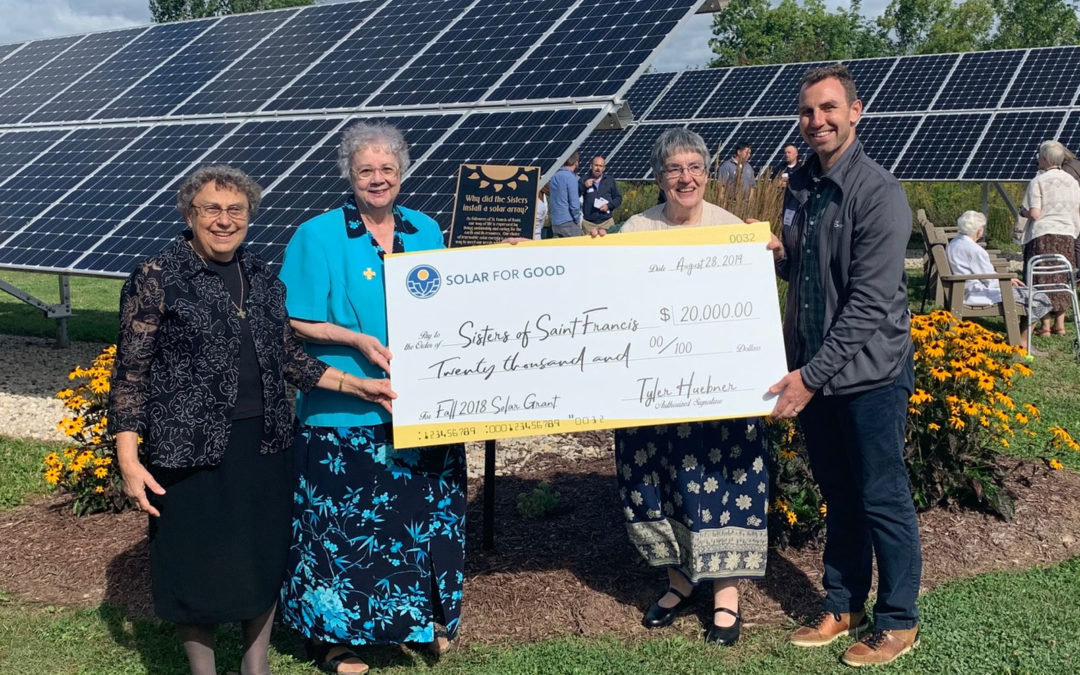
by Sam Dunaiski | Dec 16, 2019 | Community, Local Initiatives, Programs, RENEW Wisconsin, Solar, Solar for Good
RENEW Wisconsin’s Solar for Good program will issue nearly $140,000 worth of solar panels to Wisconsin nonprofits as part of their fall 2019 funding cycle. These grants will go to 13 organizations across the state that together will install nearly 600 kilowatts of clean, renewable electricity. When completed, these solar projects will lead to over $1.2 million of solar investment in Wisconsin.
The following organizations have been offered Solar for Good grants to install new solar electric systems:
CAP Services, poverty alleviation, Stevens Point
Camp Amnicon, outdoor retreat and spiritual worship, South Range
Menīkānaehkem, Native American educational organization, Gresham
Habitat for Humanity – La Crosse Area, affordable housing provider, La Crosse
Jackson County Animal Shelter, safe haven for stray animals, Black River Falls
Heartland Housing, affordable housing provider, Madison
First Unitarian Society of Milwaukee, house of worship, Milwaukee
Boys & Girls Club of Greater La Crosse, youth education, La Crosse
Bethel Lutheran Church, house of worship, Madison
Movin’ Out, alternative housing provider, Madison
Zwingli United Church of Christ, house of worship, Verona
Kathy’s House, alternative housing provider, Wauwatosa
One organization has asked to remain anonymous at this time.
This round of Solar for Good funding features a diverse group of awardees from across Wisconsin. The Boys and Girls Club of Greater La Crosse will use their solar installation to help educate members on renewable electricity and energy efficiency for their recently-renovated facility. Over 200 solar panels will be installed at Kathy’s House, a hospital guest-house in Wauwatosa. And the Indigenous-led organization Menīkānaehkem, will install solar to power several tiny homes being constructed on the Menominee Indian Reservation to house the community’s homeless population.
“We decided to go solar to reduce our energy bills and to focus more of our resources on programming,” said Guy Reiter of Menīkānaehkem. “We plan to use the array as a training center for community members interested in pursuing a career in solar. Thanks to the Solar for Good grant, we are moving closer to our goal of making the Menominee community energy-sovereign as a way to create jobs, restore hope, reduce carbon pollution, and mitigate climate change.”
This marks Solar for Good’s 5th funding cycle and the second-largest to date. Including the fall 2019 funding cycle, the program’s impact will total 74 Wisconsin nonprofits installing 88 new solar arrays throughout the state. The program will add 3.25 megawatts of clean, renewable power to Wisconsin’s electric mix, enough to power approximately 650 homes. In total, these 88 solar arrays will spur over $7 million in investments in renewable electricity.
About Solar for Good
RENEW Wisconsin’s Solar for Good initiative fosters the expansion of solar power among mission-based nonprofits and houses of worship in Wisconsin. Through a generous partnership with Couillard Solar Foundation, RENEW Wisconsin awards solar panels to nonprofit organizations, helping them switch to clean, renewable, solar energy.
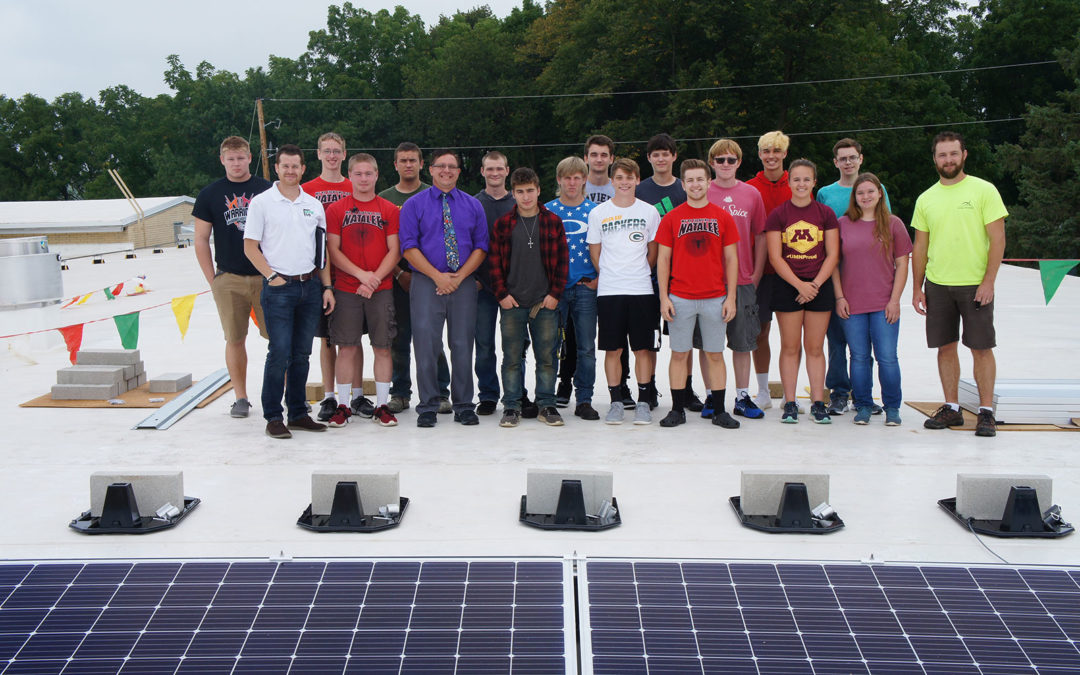
by Sam Dunaiski | Sep 26, 2019 | Community, Events, Programs, RENEW Wisconsin, Renewables, Solar, Solar for Good
Construction of Juda School District’s new solar array began on Tuesday, September 17th and Juda High School students got a first-hand look at the solar installation process. Ryan Harkins of Synergy Renewables, designed the 4-kilowatt solar array that will help the school offset its electricity consumption and reduce its utility bills.
Sixteen students, mostly seniors from Juda’s Calculus and Engineering classes participated in the installation process.
“Helping put solar panels on our school really shows what our Engineering class can accomplish,” said Juda student Tristan Geisking.
Harkins showed the students how to install the panels’ racking and connection devices, and the students also learned how solar energy is produced.
“Developing a solar project from the planning stages to the installation is an experience the students will remember for years to come,” said Harkins. “The students did a fantastic job.”
In 2012, the Juda School District set a goal of generating 10% of their electricity from renewable energy. The district had 36 solar panels installed in 2014 to offset its electric use. The new solar installation adds 12 more panels to the school’s rooftop and the two installations combined offset nearly 10% of the school’s electricity.
To help with costs, Juda received grants from RENEW Wisconsin’s Solar for Good program and the Public Service Commission’s Office of Energy Innovation. These grants helped fund the solar array, and a host of other energy efficiency measures at the school including building envelope improvements, HVAC optimization, and 100% LED lighting.
“Initially, the proposed payback to the school district would take 6 years. Now, thanks to the Energy Innovation Grant, the school is already realizing the savings,” stated Mario Millonzi, President of Upper 90 Energy and contractor on the project.
Juda is now saving over $30,000 per year in utility costs, and over $6,000 in yearly maintenance costs. The school, however, sees the cost-savings as only one part of the project’s benefits.
“At Juda, we issue the challenge to the students to make the school, the community, and the world better,” said Juda Math and Engineering Instructor, Scott Anderson. “This project accomplishes all three.”
Students at Juda were key to the success of the projects. In addition to helping with the installation, they helped write grants and worked with Upper 90 on the energy saving details.
“Creating students who are aware of their role as stewards of our world may be the single most important thing I teach,” added Anderson. “Once they get started, it’s great to see what they can accomplish.”






